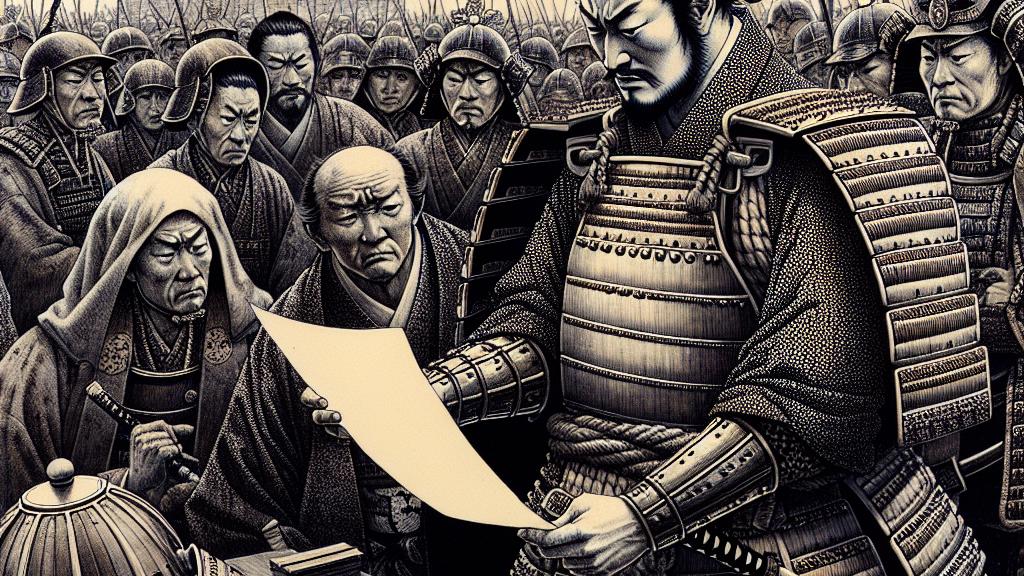Unveiling History: Oda Nobunaga's Bold Surrender Ultimatum Surfaces!
Overview
- A newly surfaced document from 1570 offers critical insights into Oda Nobunaga's political strategies during Japan's tumultuous Sengoku period.
- This document, which pressures a rival warlord to surrender, highlights Nobunaga's shrewd and intimidating tactics.
- Historians recognize this find as a rare and invaluable perspective into the complex power dynamics of feudal Japan.

Historical Context
The Sengoku period, spanning from the mid-15th century to the early 17th century, was marked by social upheaval, military conflict, and the quest for power among various warlords across Japan. Among them, Oda Nobunaga rose to prominence with the ambition of unifying the nation. The recent discovery of a document dated 1570, shortly after Nobunaga's entry into Kyoto, is a stark reflection of his strategic mindset. Addressed to the esteemed warlord Hosokawa Akimoto, this ultimatum reveals Nobunaga's intent to coerce rivals into submission as he sought to expand his influence in a country divided by conflict and shifting allegiances. His approach during this historical moment underscores a pivotal transition in Japanese history, as territorial disputes and political maneuvering defined the landscape.
Document Details
The content of the document deeply reveals Nobunaga's methods. In it, he does not merely demand surrender but offers substantial incentives, such as land and influence, as part of a high-stakes negotiation. His clear use of intimidation combined with the allure of power demonstrates a calculated approach to warfare, going beyond mere military might. Experts from the University of Tokyo's Historical Research Institute who analyzed this letter emphasize its rarity and significance in constructing a clearer picture of Nobunaga as a multi-faceted leader. He emerges not just as a conqueror on the battlefield but as a masterful tactician using psychological strategies to bend rivals to his will. The document acts as a mirror into Nobunaga's thinking, portraying him as a leader skilled in both diplomacy and coercive power—a fascinating specimen of political acumen during a chaotic time.
Significance of the Find
The importance of this newly uncovered document transcends its immediate implications; it serves as a crucial primary source for historians grappling with the nuanced narratives of feudal Japan. This artifact does not only shed light on Nobunaga’s reign; it also enriches the understanding of broader historical themes such as power, loyalty, and stratagem in political discourse. Researchers underscore how such documents can redefine the historical framework of figures like Nobunaga, moving from the perception of a mere warrior to that of a sophisticated strategist shaping the trajectory of Japan’s future. By providing insights into Nobunaga’s strategic negotiations, this find allows modern historians to draw parallels with contemporary political tactics, enhancing discussions on the nature of leadership and power dynamics that resonate even today. The discovery invites further exploration of how historical leaders leveraged documents as tools of influence, offering a foundational understanding of the interplay between military prowess and shrewd diplomacy.

Loading...